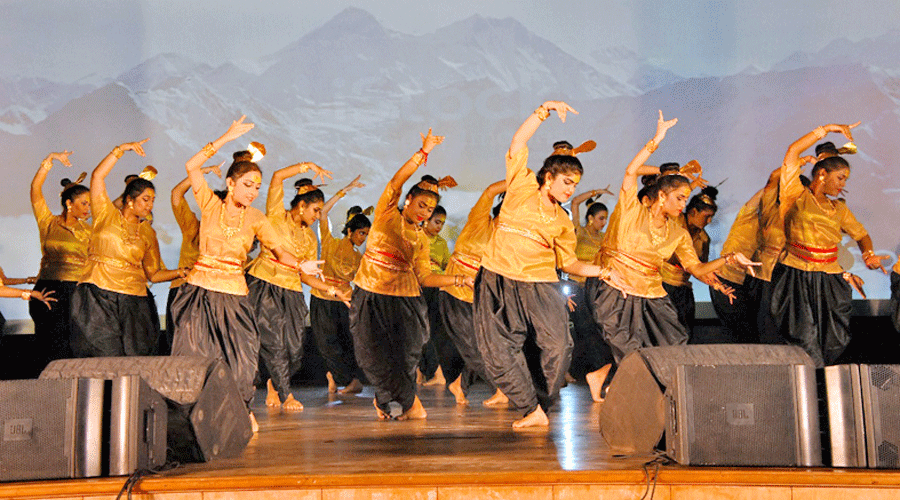Fests have made a comeback to schools after two-and-a-half years and students are seen bonding and competing with each other across campuses, teachers said.
While participants in the fests enjoyed being back on stage and the cheers they received from the audience — something they had missed in the last two years, groups of students organising the events were busy taking care of the arrangements on campus instead of sitting in front of a screen.
Teachers noticed “a less inhibited atmosphere”, bonhomie and camaraderie, not just among students of the same school but across institutions, too.
In the last two years, school fests were held online with a limited number of events and there was barely any scope for interaction. Students or schools recorded videos for events and sent it to the organising school.
Instead of watching the whole programme, students would log in only when it was time for their event. The audience was mostly mute and invisible.
“We noticed more mingling among students... There was a free and less inhibited atmosphere because perhaps after a hiatus of two years they are cherishing this freedom more,” said Aruna Gomes, principal of Loreto House.
The school hosted Octavia, an inter-Loreto fest, to encourage and promote musical collaboration within the Loreto institutions.
Besides the competitive segments, the organisers planned a musical menage where the Loreto “household” came together to sing Heal the World, for which there was no prior practice.
Several other schools organised fests in July and August: Youthopia by The Heritage School, Jaco Jagriti by St James’ School and three more fests by Mahadevi Birla World Academy are some of the many.
Some of the fests gave children the scope to interact with children not as privileged as them because they invited NGO schools to participate.
Jaco Jagriti, organised by the interact club of St James’, saw five NGO schools participating.
Tauseef Ali, president of the school’s interact club, said that being in the organising team taught one “not to discriminate” and to be sensitive to other people’s plight.
“Seeing their hardships I felt grateful for the life I lead and all that I could do despite the pandemic whereas many of these children didn’t have two meals a day,” said the Class XII student.
“The students were very well behaved and nobody complained about the food or the arrangements. Students of different schools were helping each other,” said Seema Sapru, principal of The Heritage School.
Anjana Saha, principal of Mahadevi Birla World Academy said that “team spirit” was high among students. “There was friction but they were resolving it themselves. They had left their ego behind to participate together,” she said.
